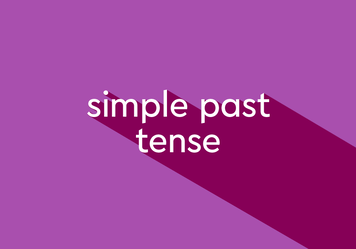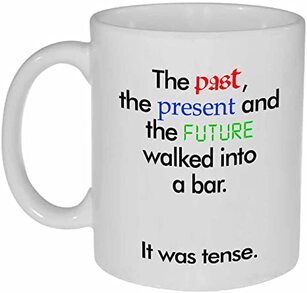 I relied heavily on my trusty Roget's Thesaurus throughout high school and college. These days, lucky writers can easily access synonyms on mobile phones and computers. If you aren't already a fan of synonyms, I hope you will be after reading this post! 4 REASONS WHY YOU SHOULD LOVE SYNONYMS
Reason #1: Eliminate Repetition Why use the same words over and over when you can enliven your essay, story, or speech with sparkling synonyms? Reason #2: Increase Vocabulary Thesaurus.com (part of dictionary.com) makes it simple to look up synonyms. Yes, you should look up definitions if don't know the meanings of any of the words. But whenever possible, use synonyms instead. To test your comprehension, turn index cards into vocabulary cards, turn a small journal into your custom vocabulary book, or create an online Quizlet. The ultimate goal should be the ability to use these new words in appropriate sentences. Here are some ideas I've used to make learning vocabulary fun for elementary and middle school children: crosswords, word searches, word matching, and clever fill-in-the-blank sentences. Additionally, Thesaurus.com has recently added Synonyms of the Day and Synonyms for Overused Words. If you like the image I used for this post, it hails from GrammarTOP.com. Reason #3: Enliven and Elevate Writing Are your essays dull and lifeless? Are your characters indistinguishable? Synonyms to the rescue! Here are some examples, ranging from simple to fancy to super casual. exciting = exhilarating = breathtaking = astonishing = groovy good = acceptable = agreeable = satisfying = awesome bad = atrocious = dreadful = defective = cruddy villain = antihero = miscreant = reprobate = creep tired = fatigued = haggard = drained = burned out make = compose = fabricate = synthesize = brew find = discover = detect = pinpoint = unearth Reason #4: Ace Standardized Tests The SSAT Verbal section has 30 synonym and 30 analogy questions, all of which require advanced vocabulary. In the Reading sections of the SSAT/SAT/ACT, synonyms often appear in correct answers. Don't wait until right before taking those tests to work on your vocabulary. If you start earlier, you can learn a manageable number of words each day. If you wait, you'll end up cramming, and it's harder for the words to stick. Here are two engaging vocabulary books I recommend: The Vocabulary Builder Workbook by Chris Lele from Magoosh SAT Vocabulary: The Essential 500 Words by Larry Krieger I hope I've convinced you to dust off your thesaurus, physical or virtual, and to become a charter member of my Synonym Fan Club! Sincerely, Laura F. Cooper
3 Comments
 Happy Halloween, everyone! I promise to keep this short and snappy so you can focus on costumes and candy in the very near future. By starting a sentence with later, tomorrow, next week, or next year, you're setting yourself up to look toward the FUTURE TENSE. So as not to put you on the spot, I'll feature in all of today's sentences. -Later, I'll put on my fuzzy-eared headband and pass out candy. -Tomorrow, I'll meet with a student to review the latest draft of her college essay. -Next week, I hope to visit with friends. -Next year, who knows, I might be vacationing in Tahiti! Notice how "might" appeared in that last sentence? Might, could, should, and will can also indicate a switch to the unknown or planned FUTURE. A promise, pledge, or prediction clearly affect the the FUTURE, too. -I could have enough candy, if I don't eat it all before the kids arrive. -I should resist, but that's easier said than done. (only kidding) -I will walk extra laps around the block if I consume too much. -I pledge to keep creating these spoonfuls up to Spoonful #100, and possibly higher. I honestly can't conceive of a book being written entirely in the FUTURE TENSE. But whether your story is narrated in PRESENT or PAST, feel free to sprinkle in some FUTURE TENSE sentences. So look toward the FUTURE and make plans for you and your characters. Go forth and (safely) have a blast!! Sincerely, Laura F. Cooper  Writers and readers alike are more familiar and comfortable with this tense. Drumroll, please! PAST TENSE is the subject of today's spoonful. How can you tell if a book is written in the PAST TENSE? First, examine the verbs in the narration.
--Were and was are PAST TENSE forms of the verb "to be." Here's a simple example sentence which tells, not shows: John was happy. --Scored and jumped are two PAST TENSE action verbs. Abra-Cadabra! Now the sentence shows, not tells. John scored the winning touchdown and jumped for joy. Next, examine the tense of the dialogue tags. Remember that dialogue is usually written using PRESENT TENSE, but the tags must reflect the tense of the narration. --Said (the PAST TENSE of say and says) is the most popular dialogue tag and barely registers to readers. Books for younger readers use said a lot! --Whispered and yelled are descriptive dialogue tags (and also active verbs), but stick out to readers. Here's my advice: use them sparingly and alternate them with action tied to the character. The sentences below demonstrate three different ways to identify who's talking. "Don't forget to turn off the light after the movie," Mom said. "I have a juicy secret," Juanita whispered to her pal Alexis. Andy scratched his chin. "I don't have a single clue." (Are you interested in learning more about show, don't tell? Check out my post SHOW AND TELL FOR WRITERS on the Writers' Rumpus blog.) Writers want to know: when should we use PAST TENSE? Whenever we want to portray action or events that occurred in the past, whether recent or more distant. How does this work across different genres? For non-fiction: If the events you're writing about are documented and/or already occurred, PAST TENSE is appropriate. If events are currently unfolding, use PRESENT TENSE. For historical fiction: By definition, history refers to events from the past and historical fiction blends history with fiction! It would be unusual to read about a known historical character or event in anything but the PAST TENSE. For other types of fiction: PAST TENSE generally works, even with a mystery laden with tension or a horror story oozing with terror and dread. For a great example of nail-biting dread written in the PAST TENSE, check out the delightfully creeptastic MG novel SHADOW MAGIC by Joshua Kahn. Science fiction calls for the most PRESENT TENSE consideration, but either tense can be used effectively. Dialogue helps books feel current, even when narration is written in the PAST TENSE. It also reinforces relationships and action, and it also helps reveal personalities! This is especially true for characters other than the narrator, since you can only reveal what they say, not what they think. Last but not least, let's not forget flashbacks. As these reflect a character's memories of the past, they must be written in PAST TENSE. To learn how to effectively write flashbacks and determine when they're appropriate, check out my post FLASHBACKS: A TRIP DOWN MEMORY LANE on the Writers' Rumpus blog. Thanks for reading this spoonful! Next up: FUTURE TENSE. Sincerely, Laura F. Cooper  Don't let your confusion over verb tenses make you emotionally overwrought!! There are a dizzying number of verb tenses (from 6 to 12, depending who you believe), but writers are in luck! We only need to choose from the two main tenses, PRESENT and PAST. And guess what? Each (as well as FUTURE TENSE) will star in their own spoonful. First up (drumroll please): PRESENT TENSE!! Do you want to share information in "real time"? If so, PRESENT TENSE is for you. Book reports are written in PRESENT TENSE, as are blog posts and advertisements. I write my spoonfuls in PRESENT TENSE because my aim is to provide current and readily usable information. Is your story contemporary or set in another galaxy? Do you want readers to keep wondering how your story will unfold or to identify closely with the main characters? Consider writing narration in PRESENT TENSE. This tense is especially fitting when you wish to achieve edge-of-the-seat, nail-biting suspense with the fate of the main characters (and perhaps of the world) hanging in the balance. PRESENT TENSE works especially well with the 1st Person POV (Point of View) - when the narrator is a character in the story, typically the main character. (For more about the 1st Person POV, check out Spoonful 47.) Whether you choose PRESENT or PAST for your overall narration, dialogue should be written in PRESENT TENSE. Dialogue tags, however, should reflect the tense of the narration. SAYS and SAY are common PRESENT TENSE dialogue tags, while SAID is the most common PAST TENSE tag. ***Special note: When writing in PRESENT TENSE, you can't have a narrator muse about events that already occurred before the events are revealed in your story!*** PRESENT TENSE verbs and dialogue tags are underlined in the following examples: 1) Cars race down the street, rupturing the peace and quiet. 2) " Look at that enormous dog!" I gush. 3) "Close your books and take out your pencils," the teacher says to the class. 4) When evaluating literary passages for a book report or essay, use present tense. This is true whether or not the author is still living. If you've never written in PRESENT TENSE, give it a whirl! You don't have to commit to writing your entire novel this way: start with a paragraph or two and see how you like it. Whichever tense you choose for your overall narration, stay consistent! Next up: PAST TENSE!! Sincerely, Laura Fineberg Cooper EVEN though EVEN or Odd EVEN = equal EVEN = flat and smooth
There are many valid uses of the root word EVEN. But EVEN (like its pal JUST) has a way of sneaking into sentences a wee bit too often. Typically, the intention behind adding EVEN is to impart emphasis. Below, I'll share 3 sentences and provide guidance about when it's appropriate to let EVEN stay and when you should ask EVEN to leave. In each example, imagine the characters are a 16-year-old boy and his father. EXAMPLE #1: "I moved the lawn and even cleaned out the garage! Please let me go to the beach with my friends! " STAY? If the father has repeatedly been asking his son to clean out the garage, or is bothered by the state of the garage, then yes, emphasis is warranted. LEAVE? If this is the first time this point is mentioned, hit delete. "I mowed the lawn and cleaned out the garage! " is more direct and appropriate in this case. EXAMPLE #2: "I don't even get off work until 10:30PM. I'll be too tired to take out the trash when I get home." STAY? If this is the last point the boy is making to strengthen his case, then let EVEN stay. LEAVE? If this is the only point the boy is making, EVEN isn't necessary. Try instead, "I don't get off work until 10:30. I'll be too tired to take out the trash when I get home." EXAMPLE #3: "The score was tied at 3-3 even, and I scored two of the runs!" STAY? Nope! Tied = EVEN, so this is a case of unnecessary repetition. Scored and score are similar too. LEAVE? Yes! Try this instead: "We tied at 3-3, and I scored two of the runs!" See how the meaning is unchanged? I'm enjoying an e-book right now with well-drawn characters, intriguing world building, and a fresh take on a popular Disney story. However, I can't help but notice there's glaring overuse of EVEN. So this is my advice to writers everywhere: before you hit submit, do a JUST-check and an EVEN-check of your work! Thank you for reading and sharing my latest spoonful. It's good to be back! If you wish to comment on this or any post, click on the word "Comments" directly below. Sincerely, Laura F Cooper |
Welcome to
|

 RSS Feed
RSS Feed
